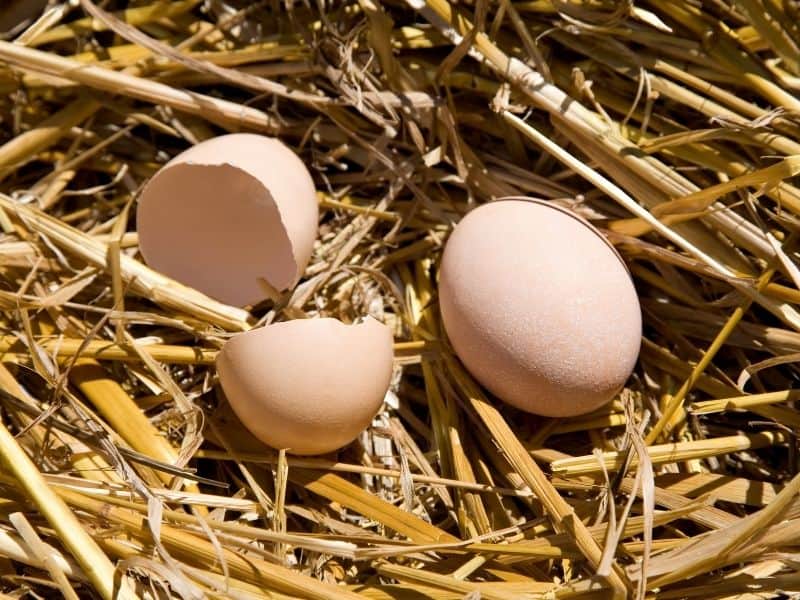
There are now more choices about the food we eat than ever. And while this seems like a good thing, it is actually quite confusing. Before you head to the grocery store to buy your next carton of eggs, take a look at this guide to understand just what all the egg terms mean.
What 4 animals do we eat eggs from?

Reptile egg
While not often eaten, there are some reptile eggs that are consumed by people. These include alligator and turtle eggs.
It is quite difficult to find reptile eggs. Not only are they delicate, but reptiles don’t often lay eggs so you would need to collect them at just the right time, after they have been laid.
Mammal egg
For the most part, mammals do not lay eggs, although there are a few exceptions. The platypus and echidna are the only animals in this category, and are classified as monotremes.
We don’t eat platypus eggs because they are always laid fertilized. Therefore, inside a platypus egg will always be a fetal platypus.
Bird egg
Eggs from birds are the most popular in our culinary repertoire. The chicken is, of course, the most popular bird to lay eggs.
Other bird eggs that are enjoyed are duck eggs, quail eggs, and even ostrich eggs.
Fish egg
Although they are tiny, fish eggs are regularly consumed by people the world over. Fish eggs are called roe and they are usually spread on toast.
Beluga sturgeon fish produce the much sought-after caviar, but we also consume roe from salmon, carp, and other types of sturgeon.
Popular Types of Eggs

Free-Range Eggs
Free-range eggs are seen as the most humane form of eating eggs. Chickens that lay these eggs are permitted to be outside and have much more room to move around in.
While more humane, there are some downsides to free-range eggs. Chickens can be quite territorial, and if there are a lot of chickens in a space, even if it is outside, this can lead to more fighting.
Free-range chickens also need more food in order for them to stay warmer in outdoor weather. However, free-range chickens are often referred to as happy chickens.
Standard Brown Eggs
Yes, standard brown eggs come from brown chickens. The color of an eggshell depends on the breed of the egg, while the color of the yolk depends on the food they eat.
Standard brown eggs come from chickens raised similar to chickens that produce standard white eggs. It is not very humane and chickens are often raised in very small pens.
You might be fooled into thinking that brown eggs are better than white eggs. However, they both have the same nutritional value.
Organic Eggs
Chickens that lay organic eggs have not been treated with antibiotics or hormones. Moreover, their food source is also organic.
The biggest element to realize with organic eggs is that the label has nothing to do with how the chickens are treated. So, even though they are given organic food, they can still be raised in tight, indoor pens.
Processed Eggs
If you’re short on time, chances are you’ve turned to a processed egg. These types of eggs are simply eggs that have already been cooked, and then are sold that way.
Common processed eggs include pre-peeled hard-boiled eggs and even pre-cooked scrambled eggs.
Unfortunately, most processed eggs are made from standard white eggs so there isn’t a lot of choice with them.
Vitamin-Enhanced Eggs
Eggs are great and nutritious, but there have always been those who wish they could be even better. Vitamin-enhanced eggs start with the chickens who are fed a diet that is pumped with supplemental vitamins.
This nutrition is then passed on when the hens lay their eggs. Vitamin-enhanced eggs cost more, due to the enhanced chicken feed, but it is an easier way to ensure you’re getting extra nutrition in your diet.
Standard White Eggs
When egg production became standardized, white eggs were used that in turn produced standard white eggs.
While standard white eggs do have nutritional elements, such as protein, they lack other, added elements that other eggs have.
Standard white eggs also lack a bit in taste. They have pale yellow yolks, due to their high-corn diet.
The biggest concern with these eggs is how the chickens are raised. Often packed into small areas and not able to roam around, it is not considered very humane, which is why so many other types of chicken eggs are now being produced.
Omega-3 Eggs
Omega-3 eggs are produced because the hens are fed flaxseed in addition to their regular food. Flaxseed is a good source of Omega-3, and this nutrient is then passed through into their eggs.
The amount of Omega-3 is about 12 times the normal amount found in standard white eggs.
Vegetarian Egg
It may seem counter-intuitive, but you can produce vegetarian eggs. This starts with what you feed your chickens.
Chickens are by nature omnivorous. While they love eating vegetables, they also readily snack on bugs and worms.
Vegetarians feel that if the chickens are only given a vegetarian diet and raised humanely, then eating the eggs would fit into their own vegetarian restrictions.
However, chickens naturally like to eat meat sources, such as grubs, so this can go against the animal’s own instincts.
Free-Run Eggs
There is often a lot of confusion between this type of egg and free-range eggs. Free-run eggs come from chickens that are allowed to roam around inside a barn.
The difference is that free-range chickens live outside while free-range chickens are only sometimes allowed outside.
Which type of eggs are the healthiest?
Chicken eggs are a nutritious source of protein. Vitamin-enriched eggs and even Omega-3 eggs are the healthiest options.
Conclusion
Eggs are a staple in almost every home. Whether you fry them, scramble them, or boil them, they provide a hefty dose of protein. There are many types of eggs you can choose from, depending on if you are more concerned about the welfare of the chickens or the nutritional content of the eggs themselves.
Related Article:

